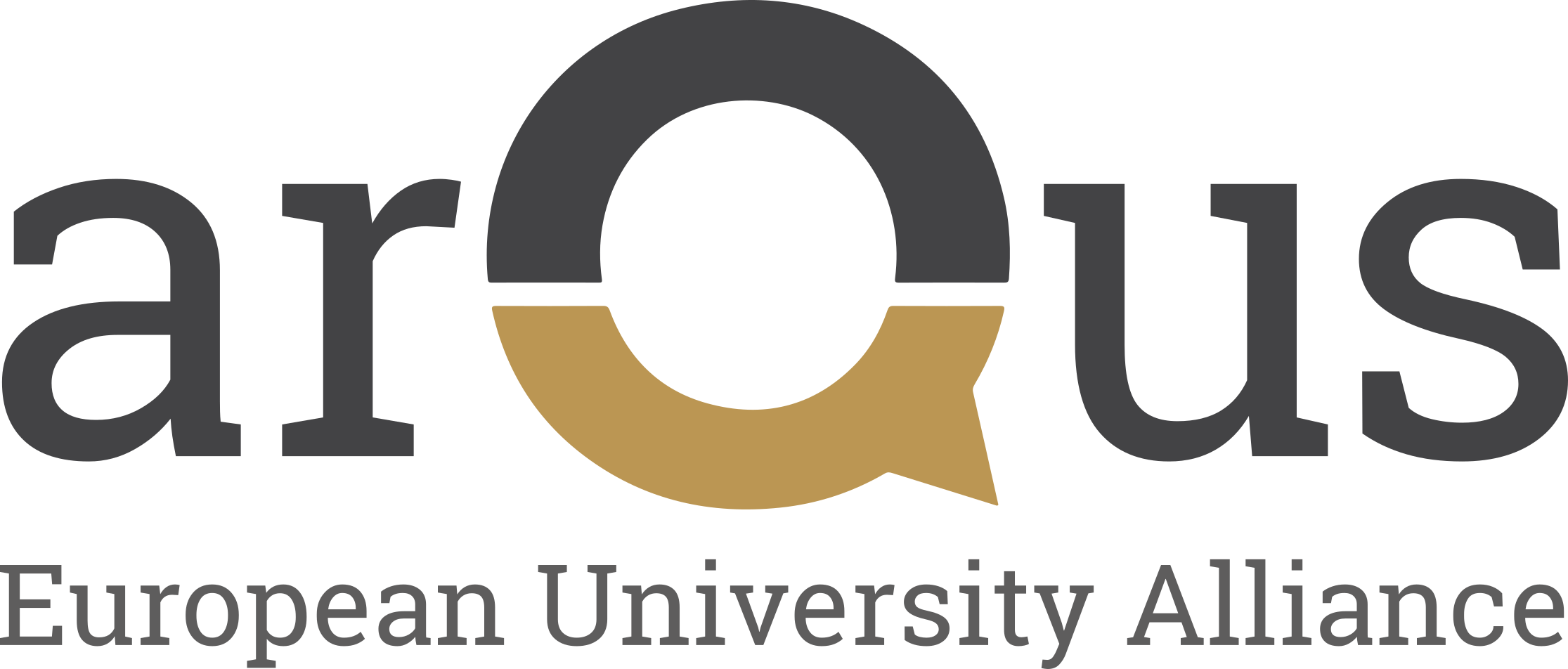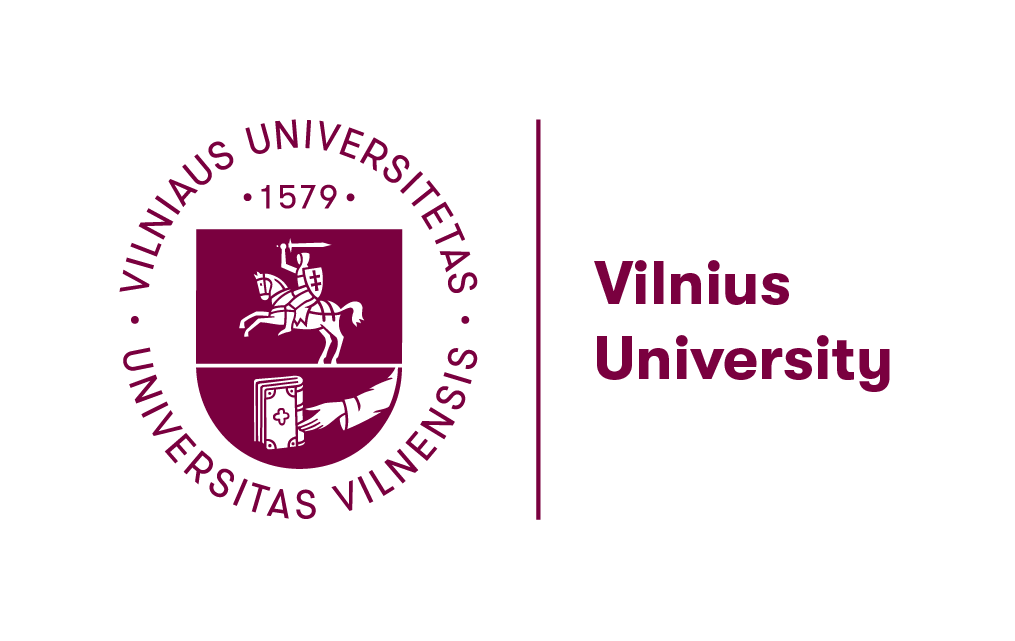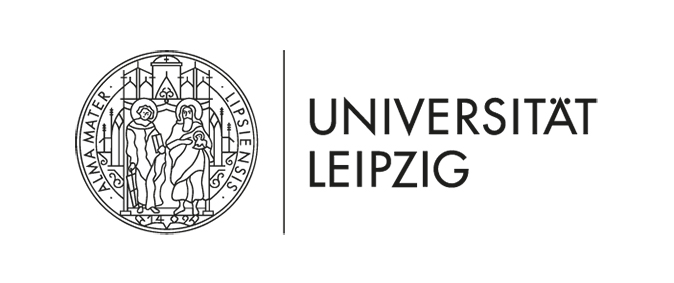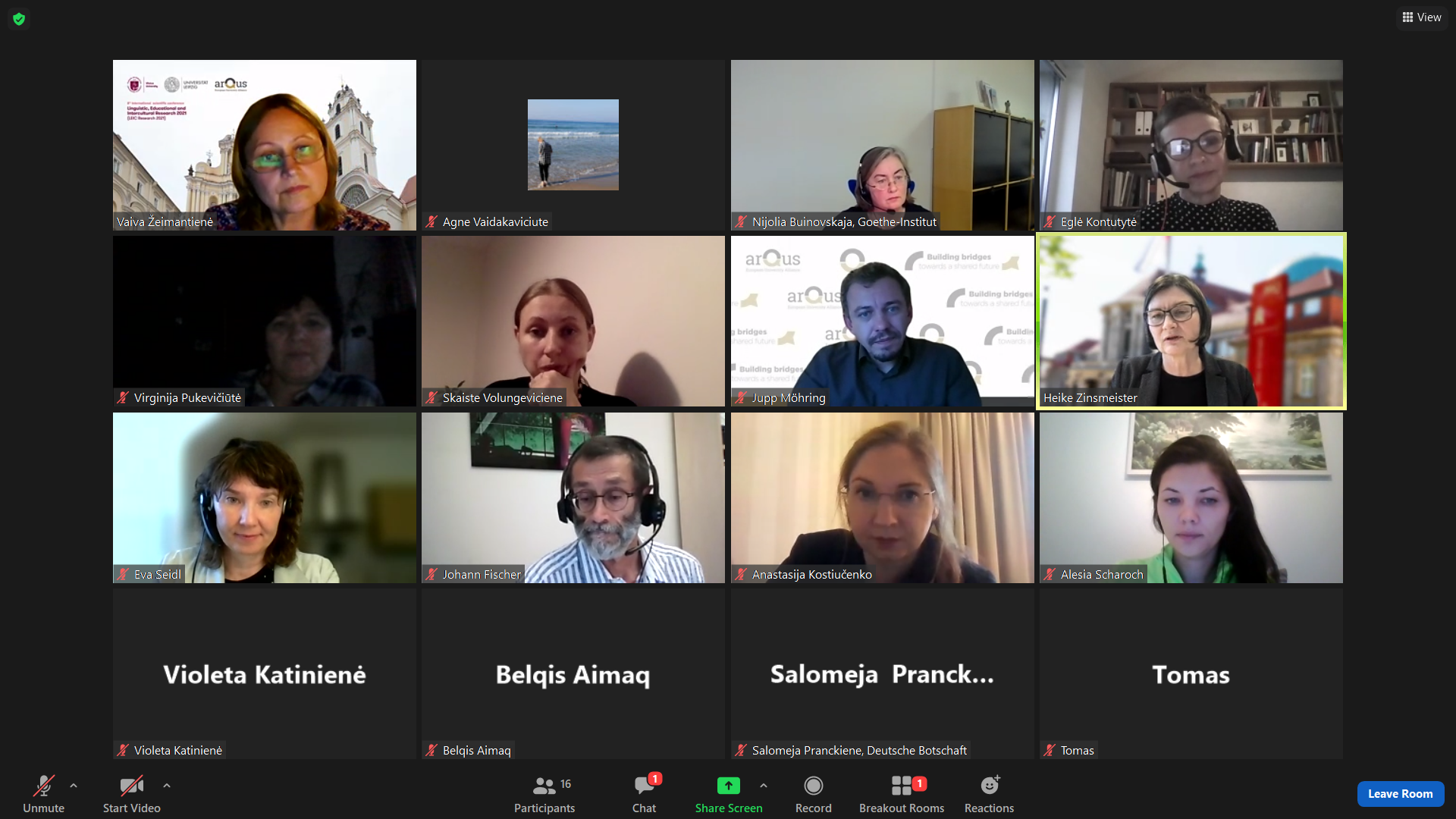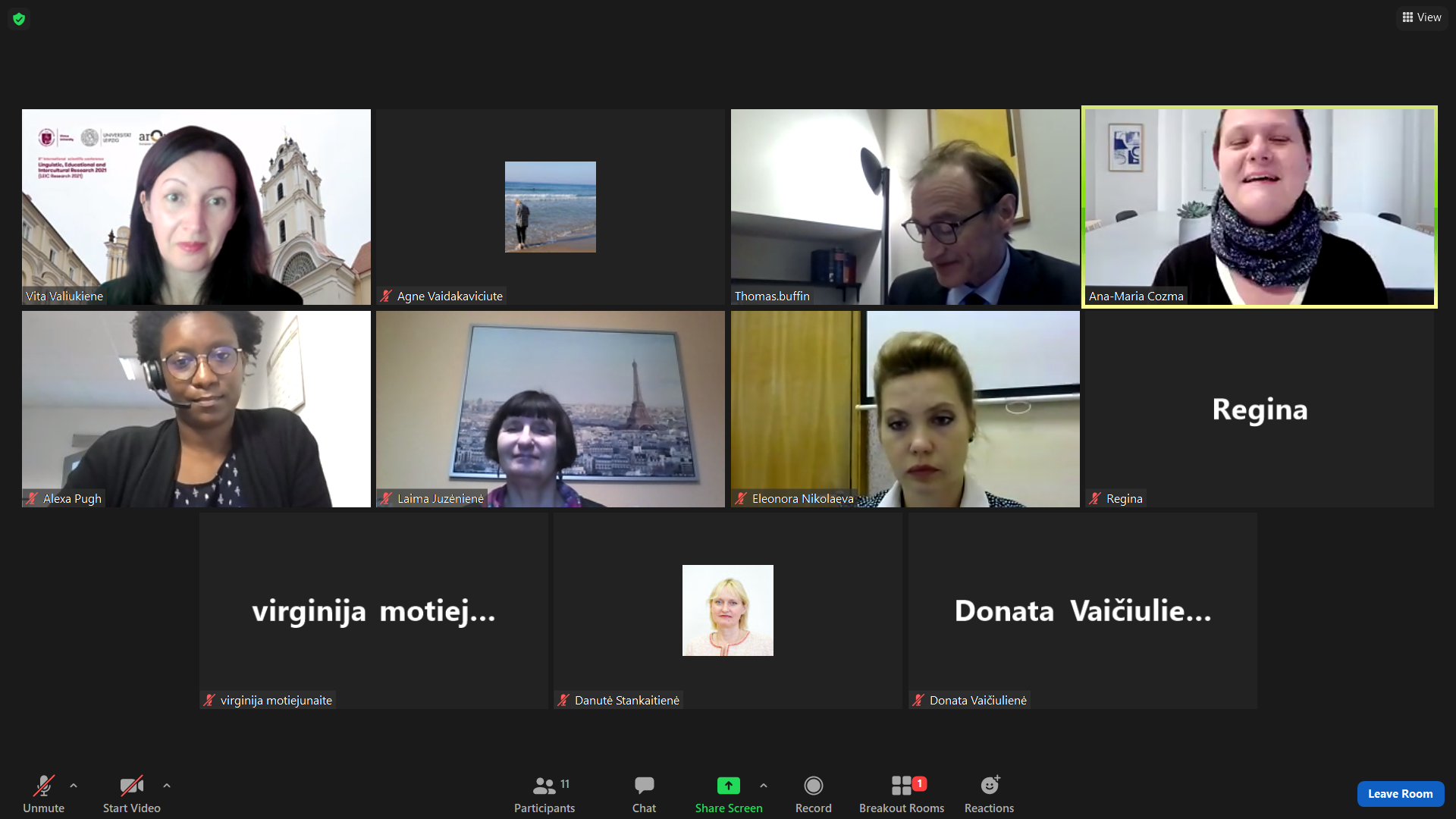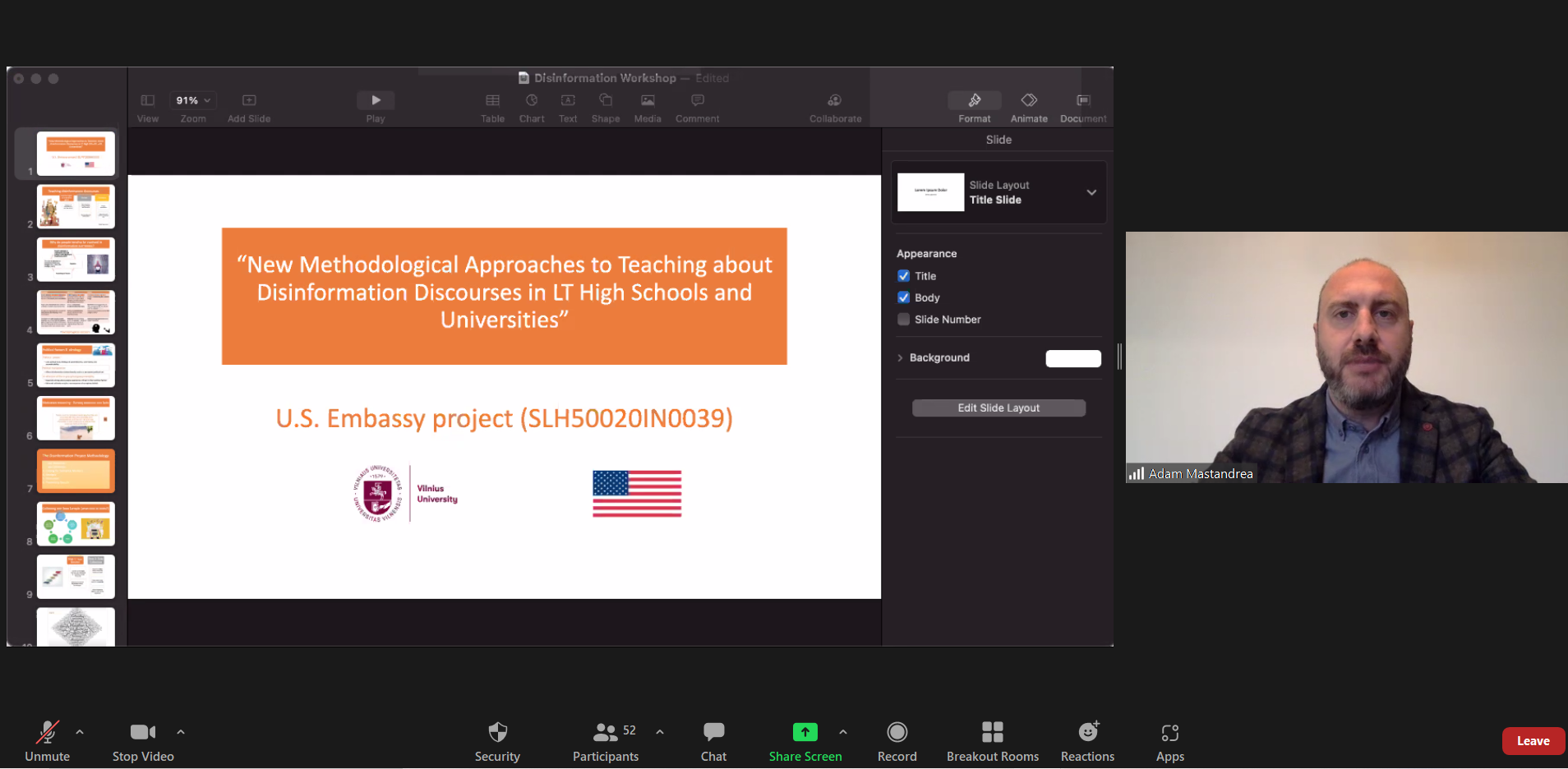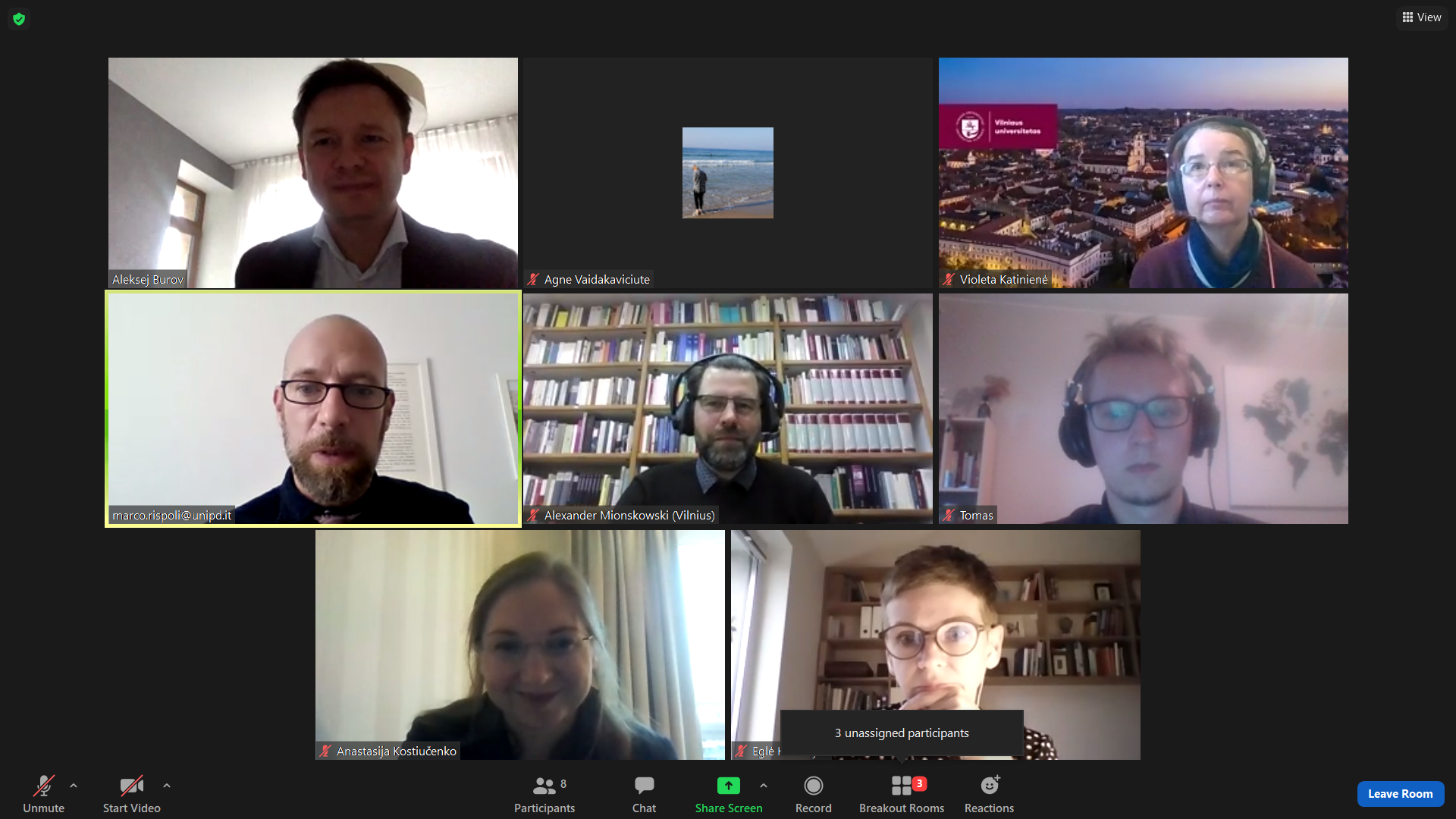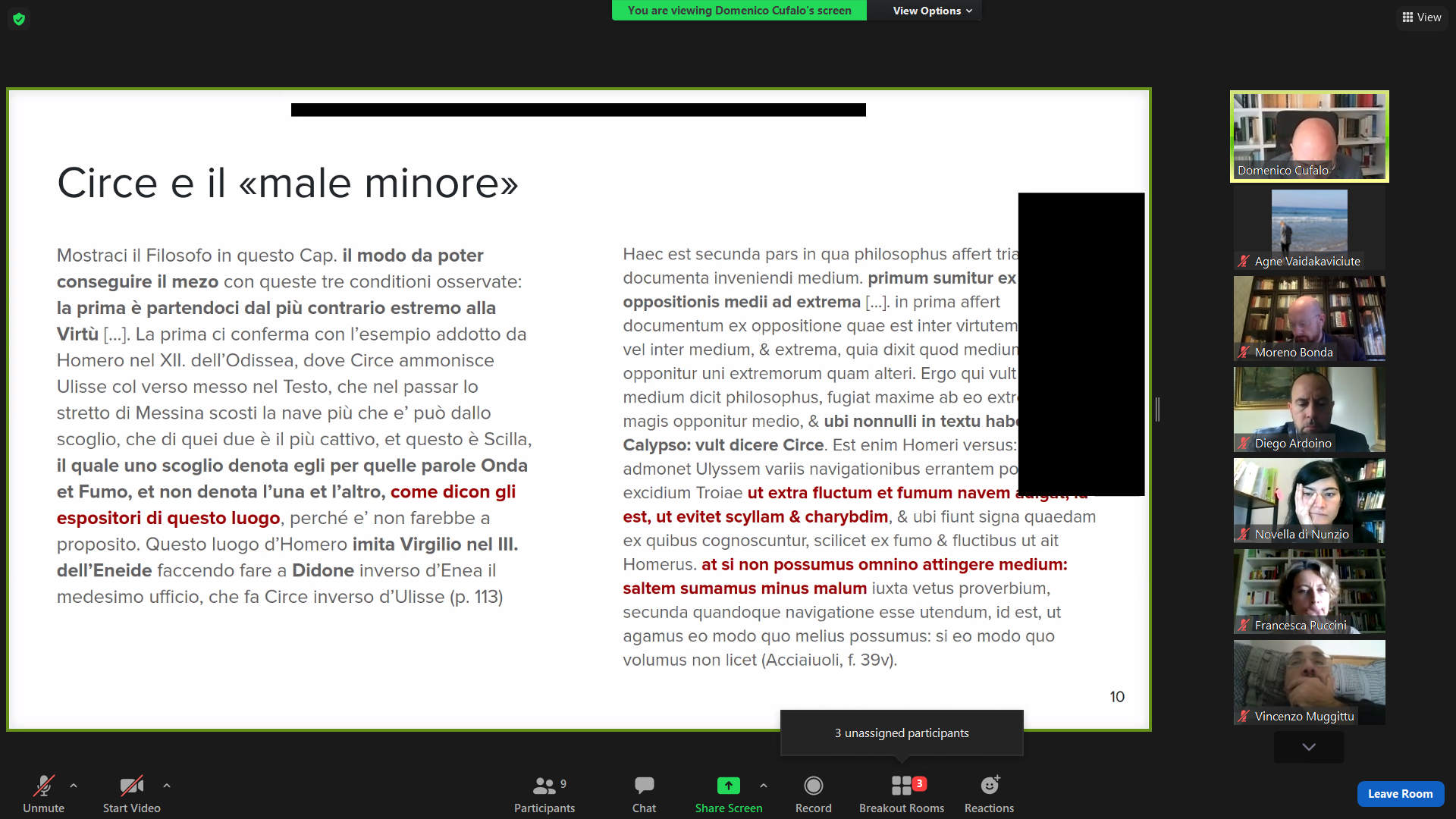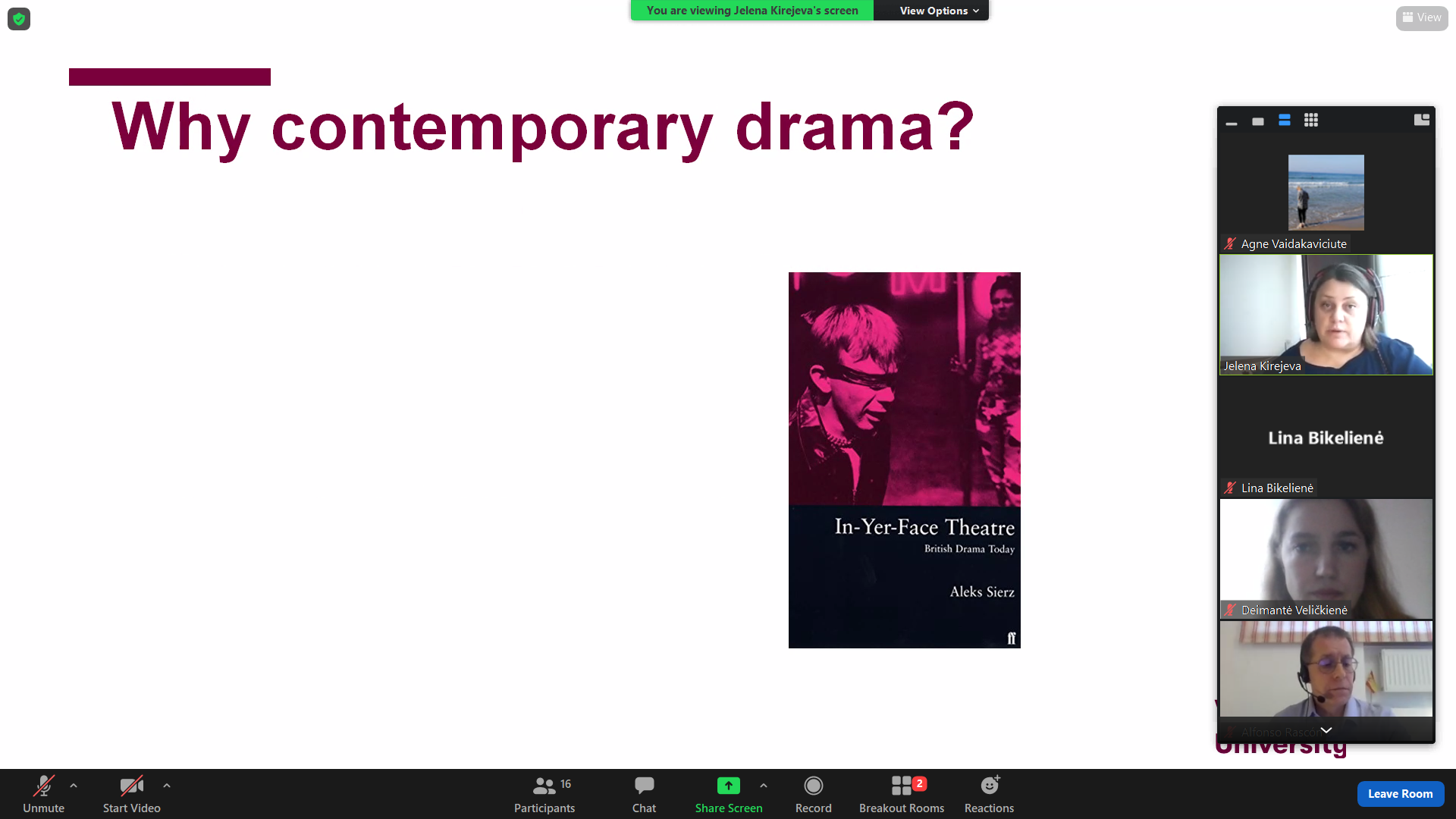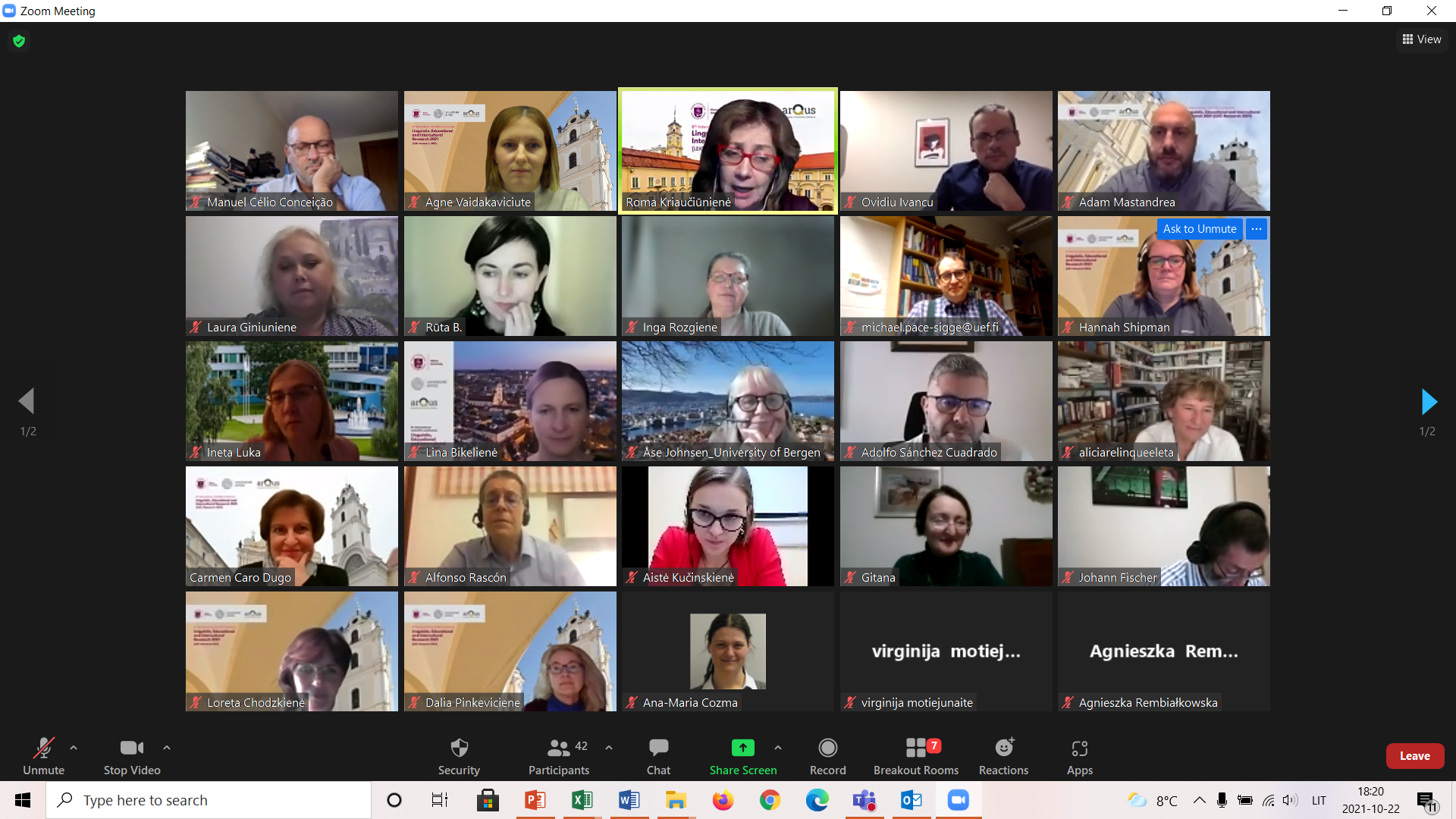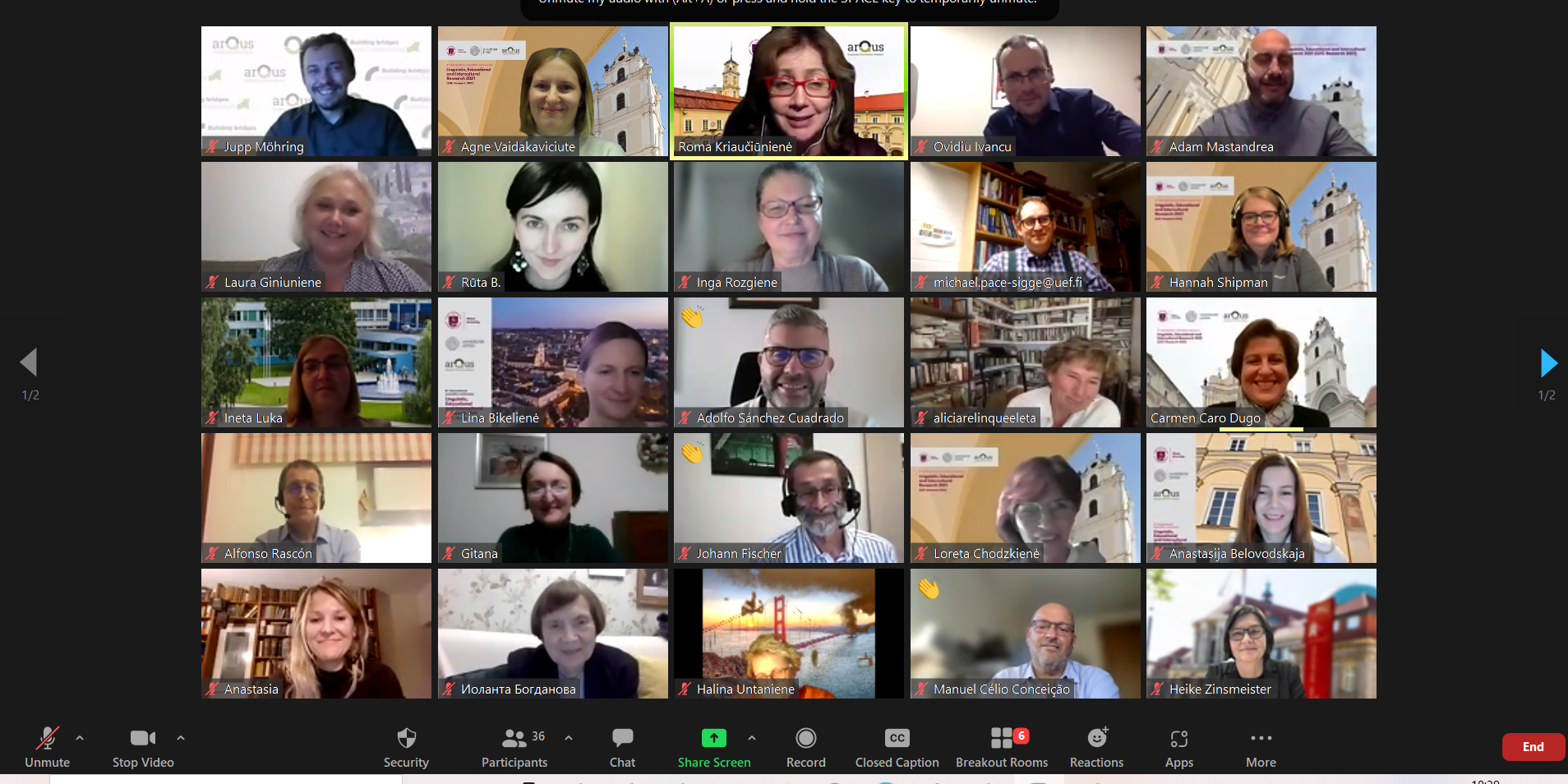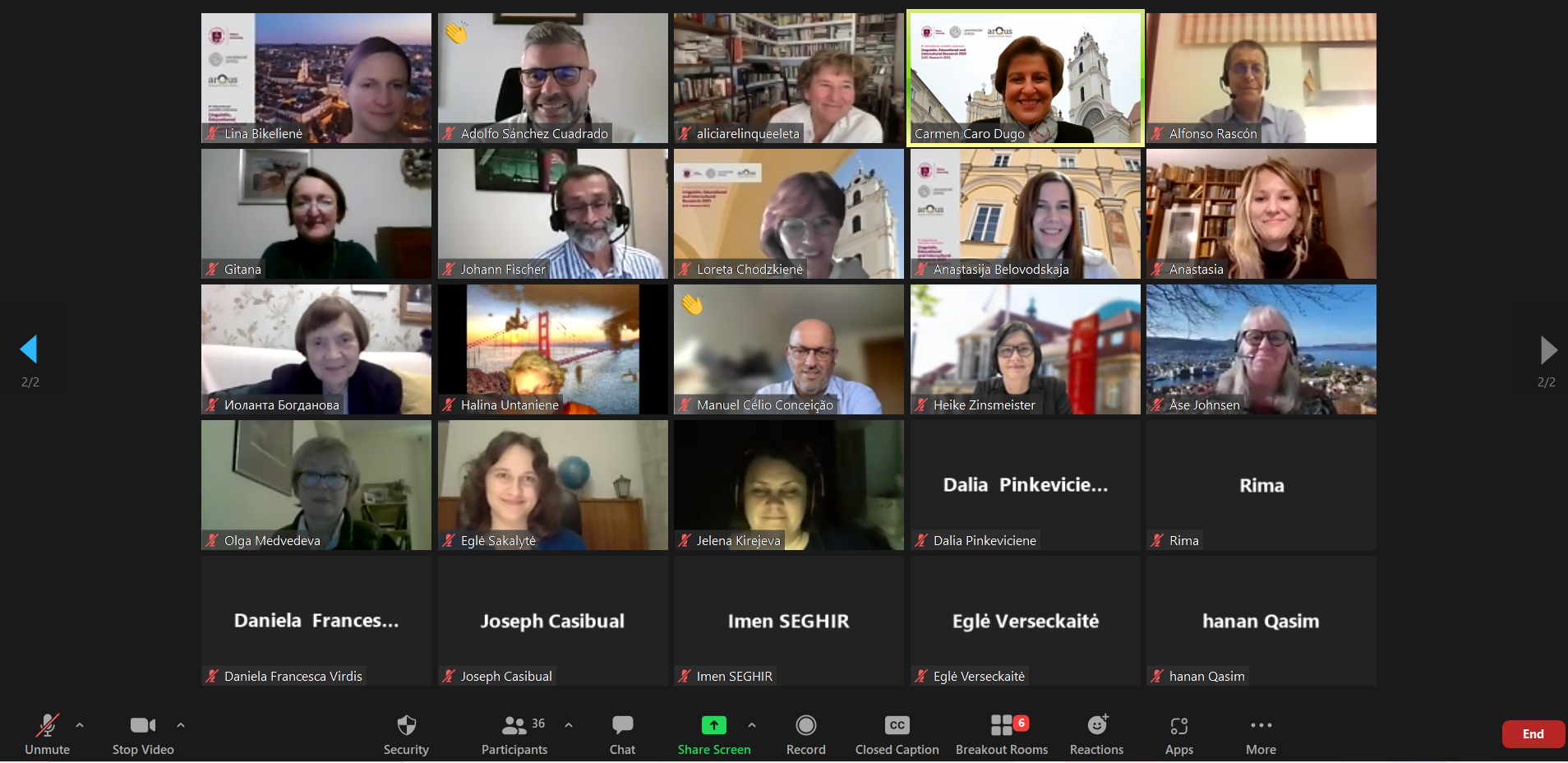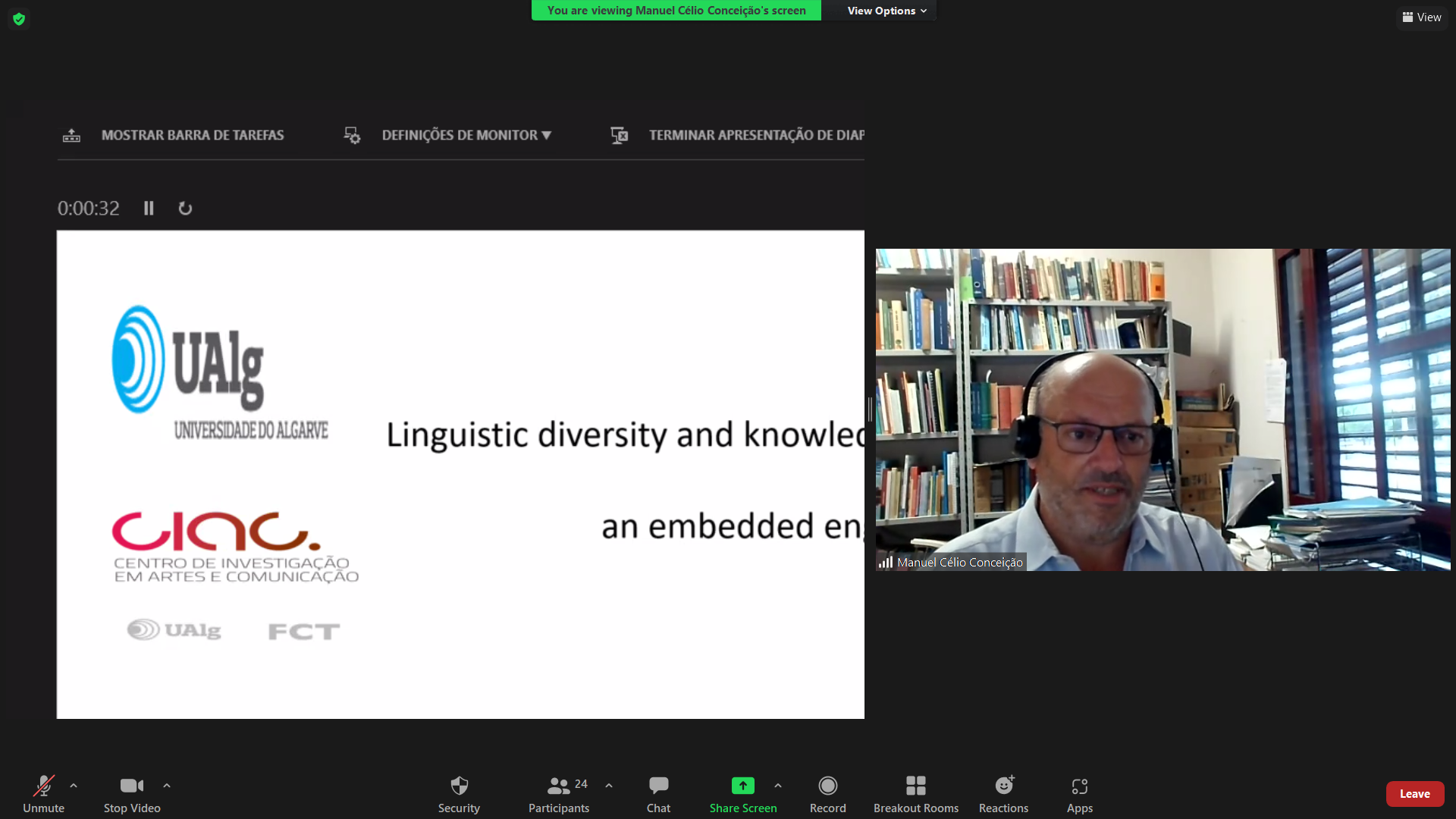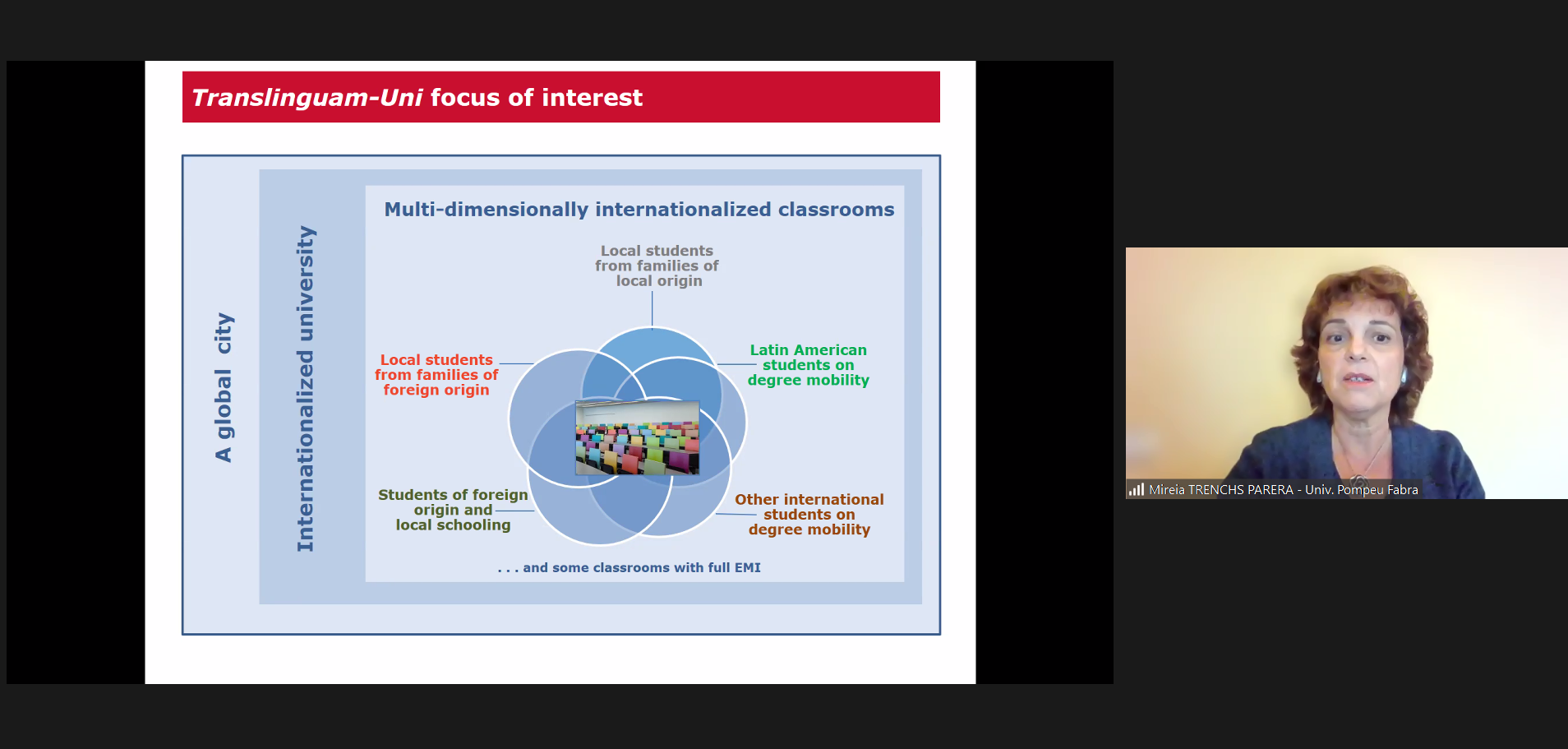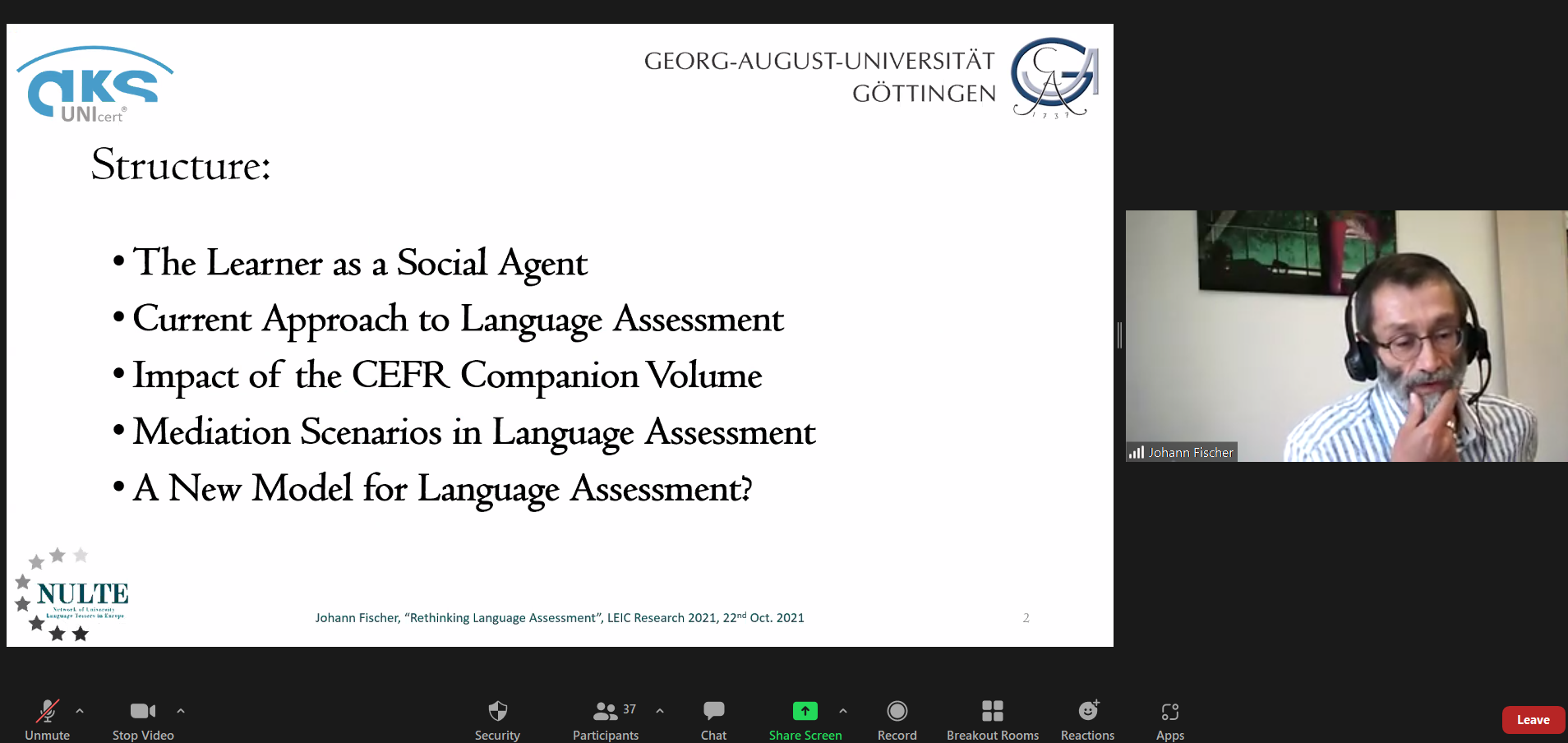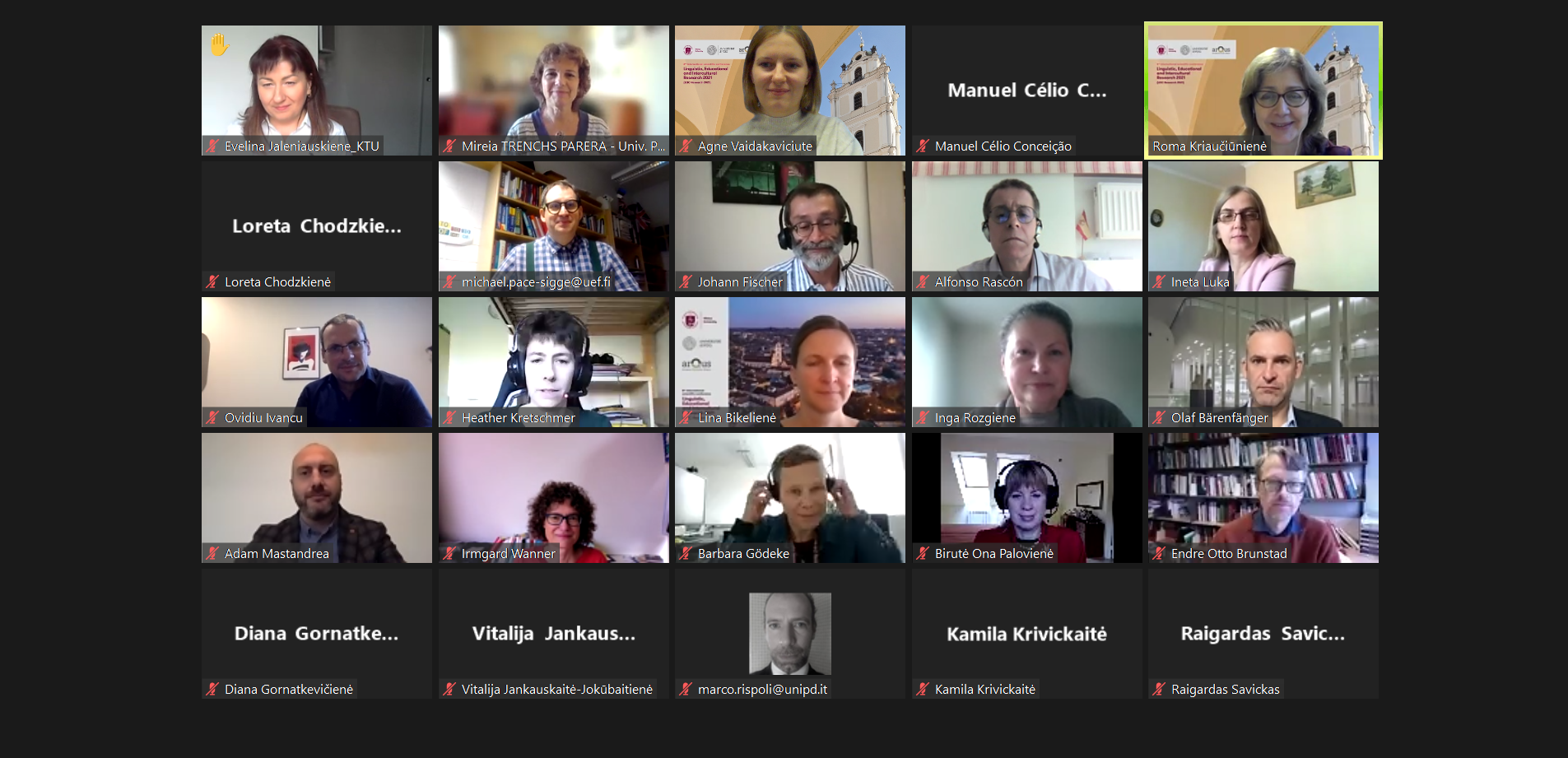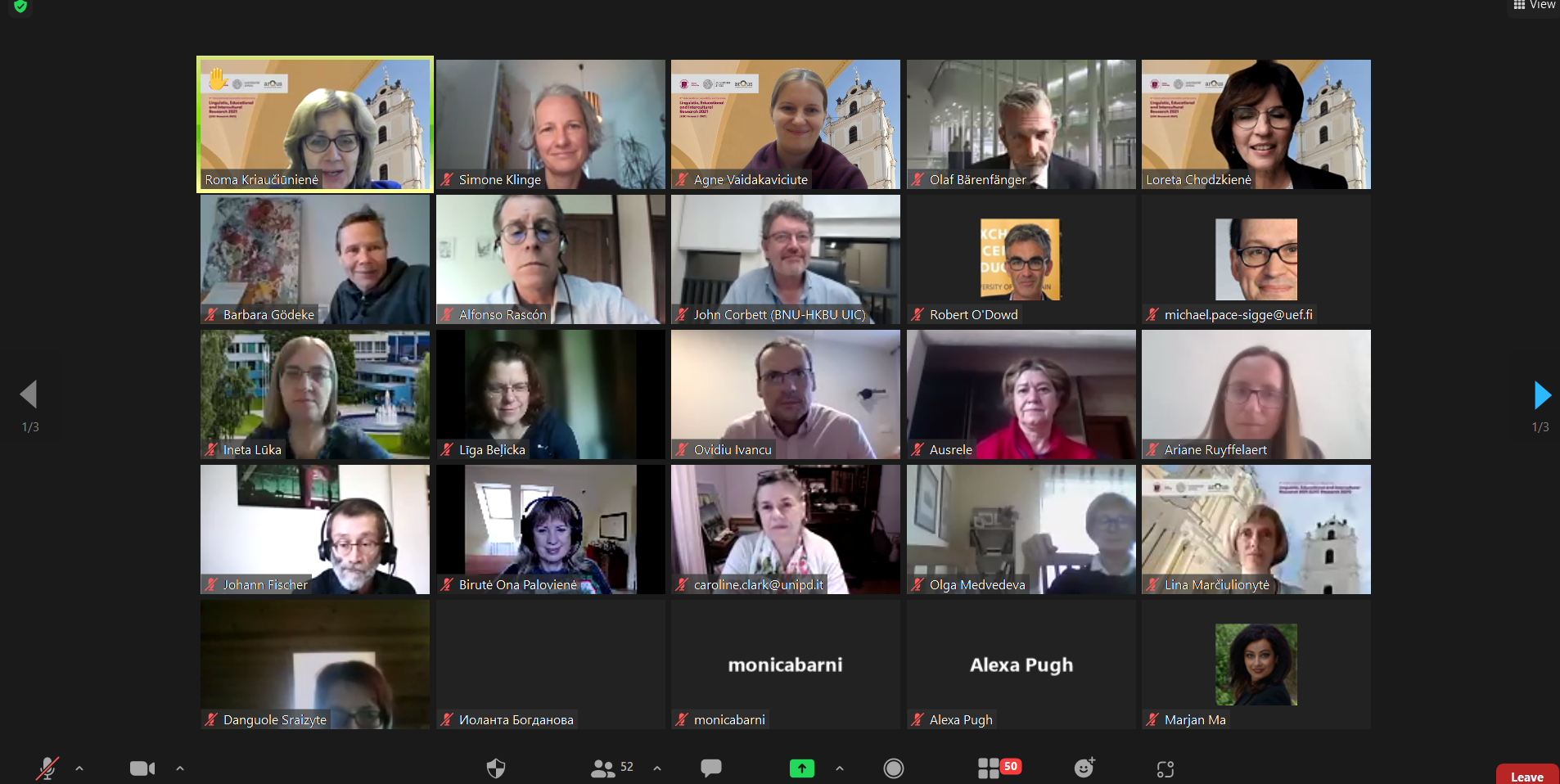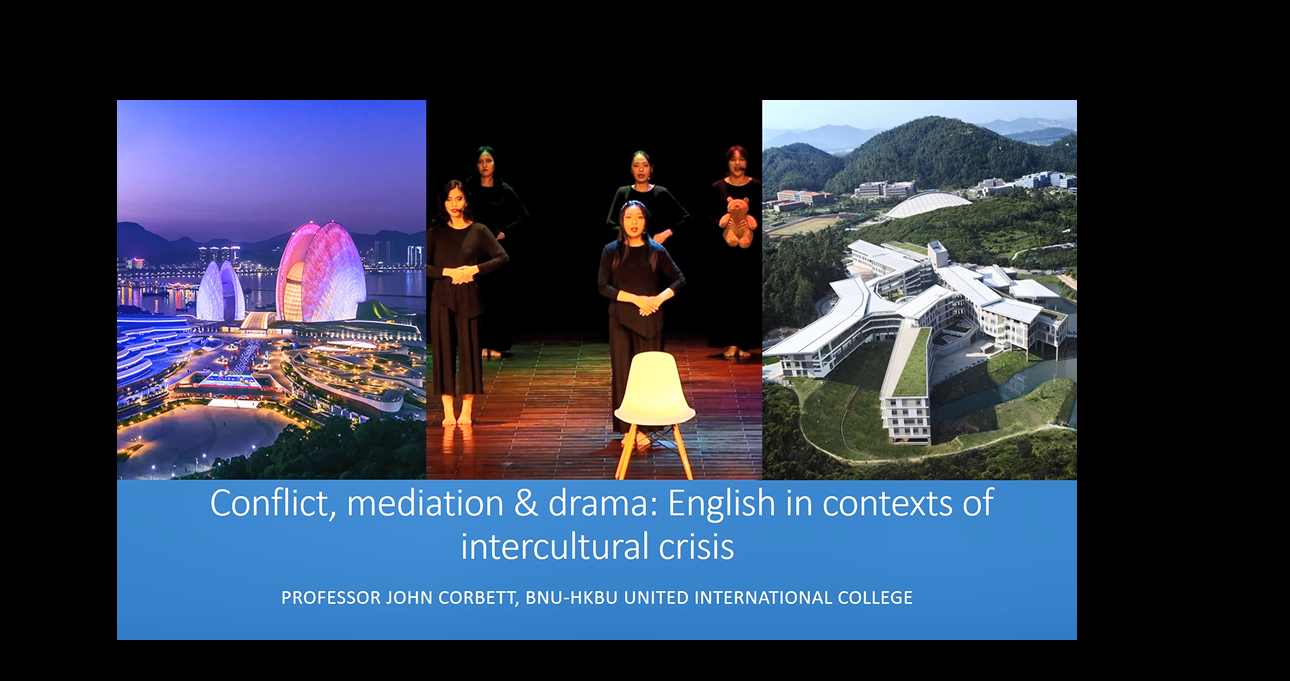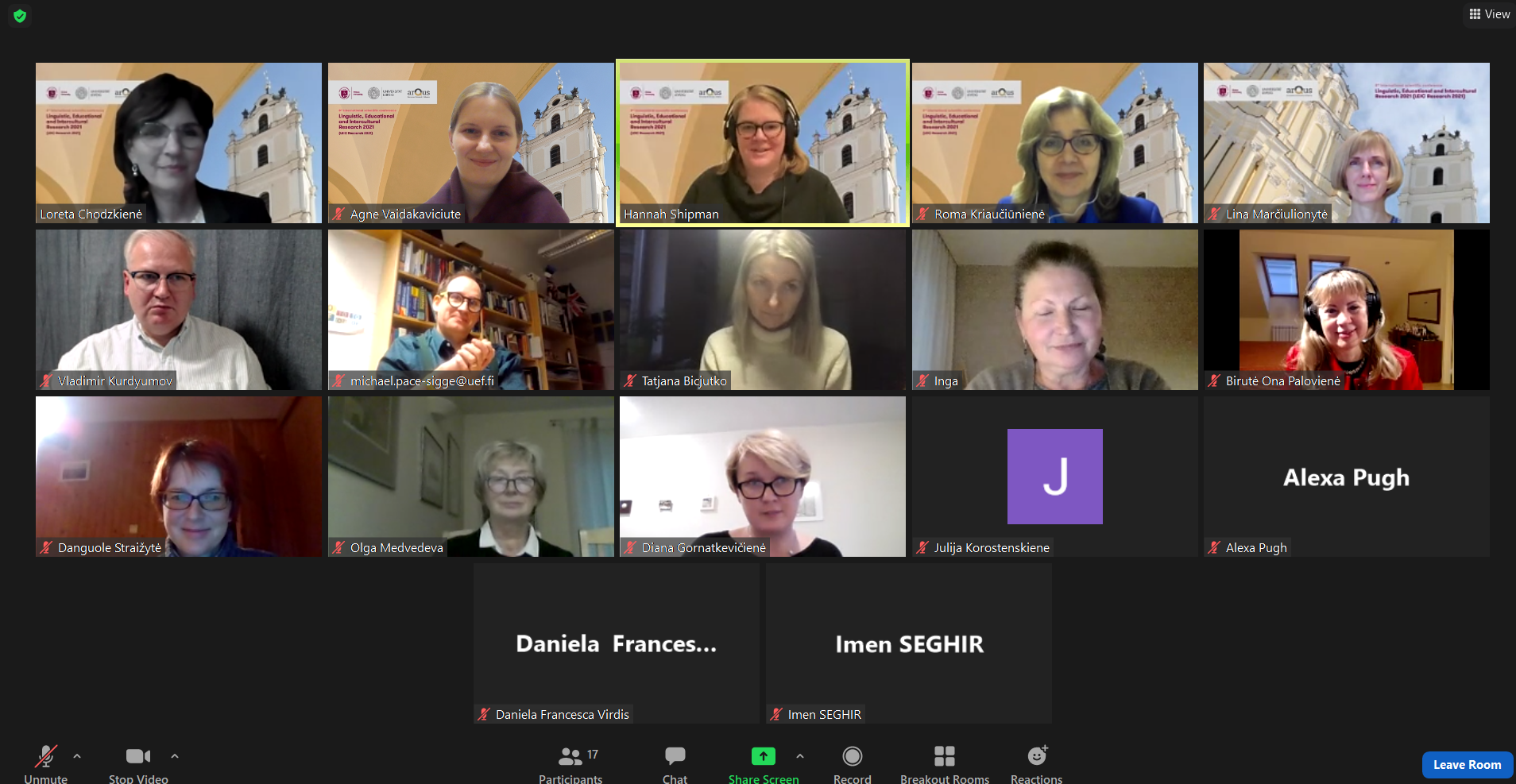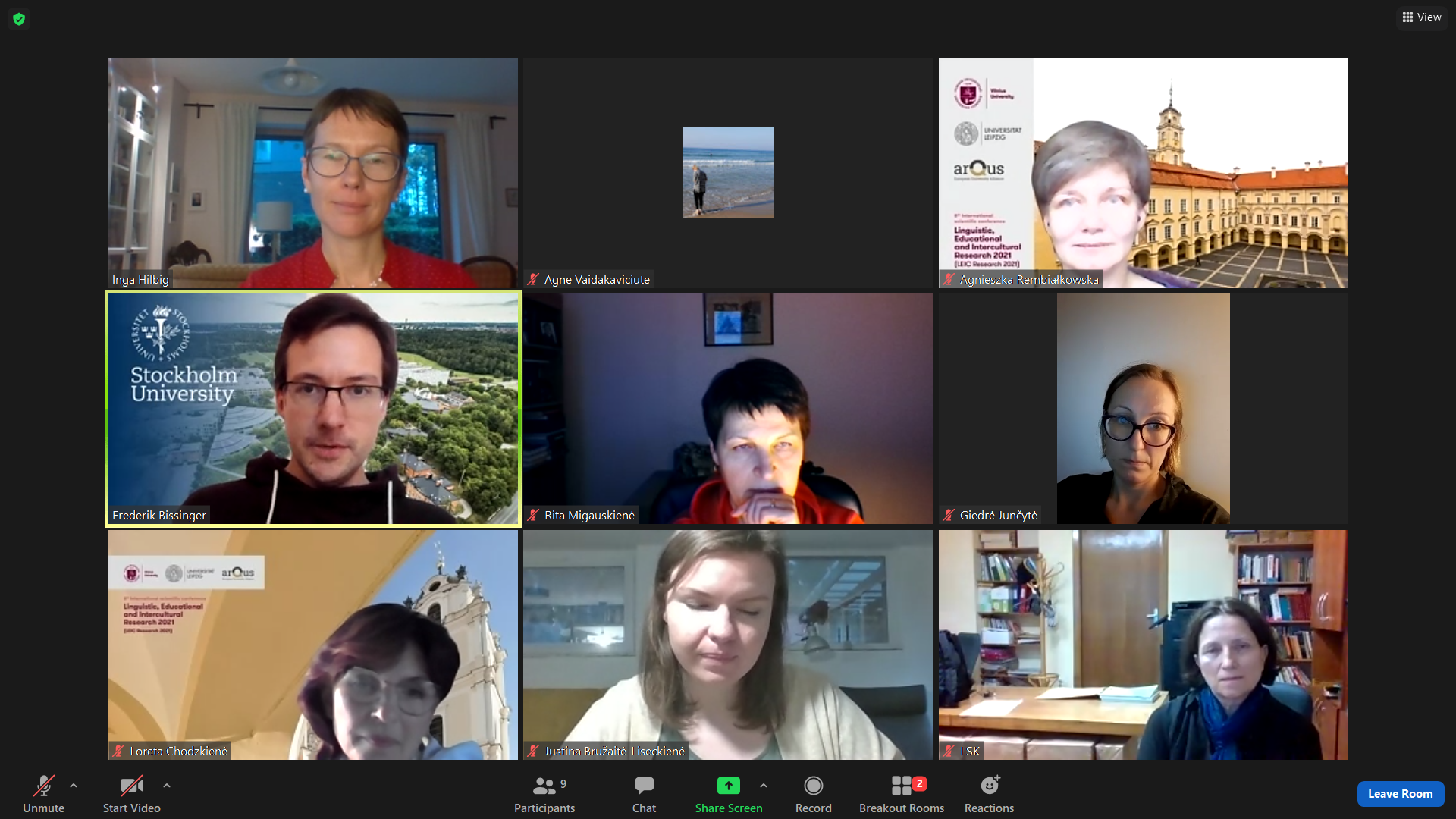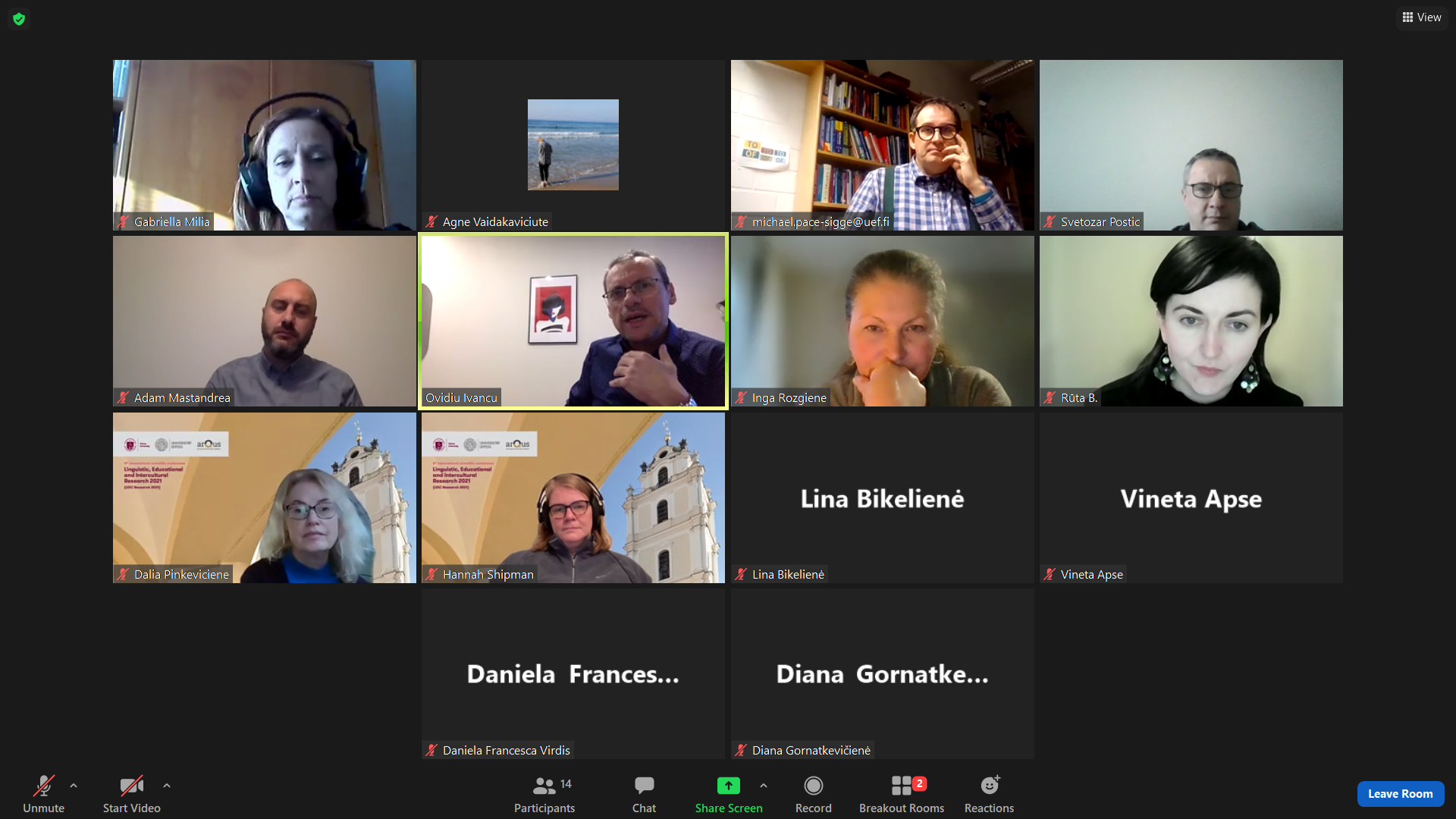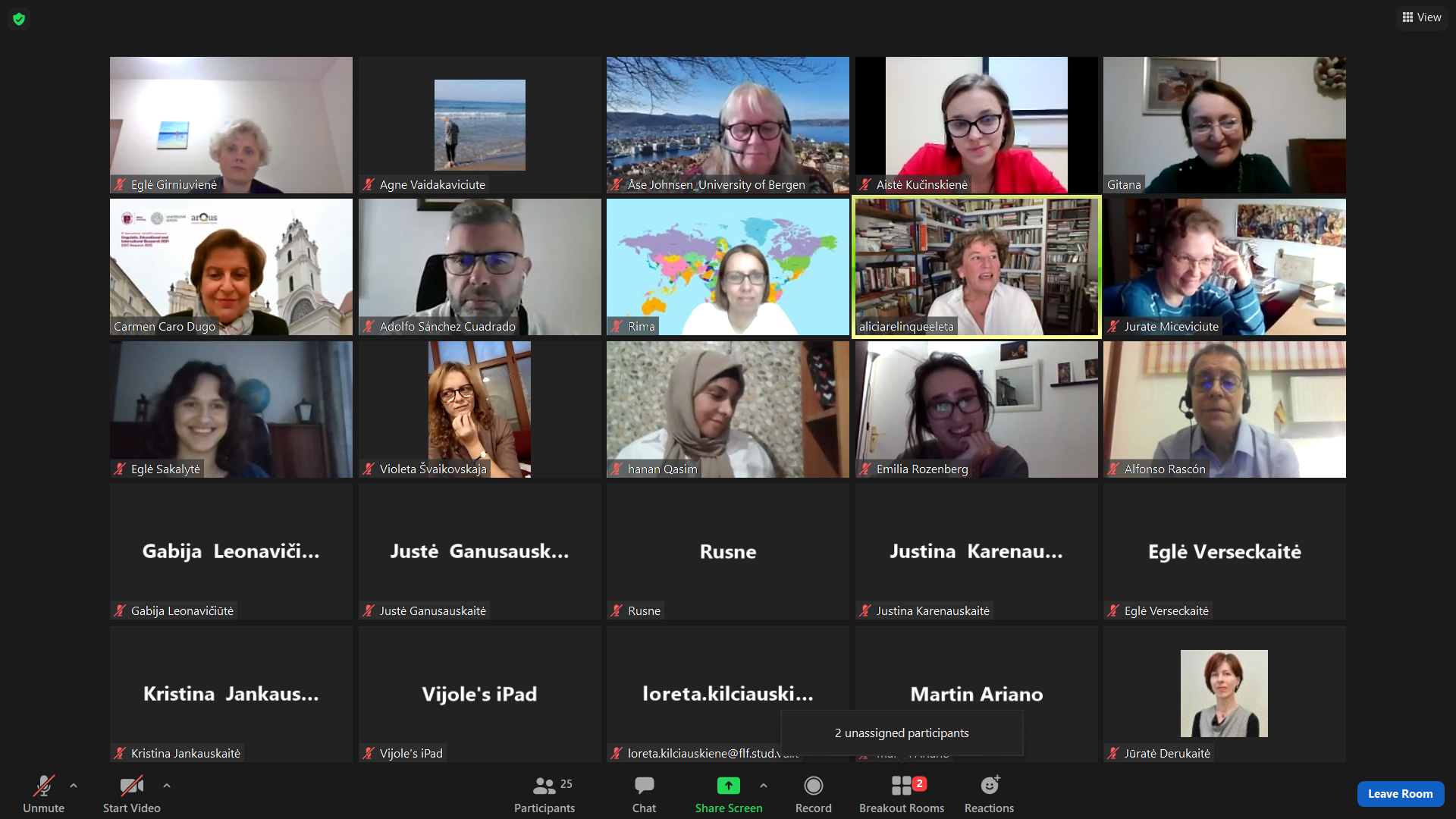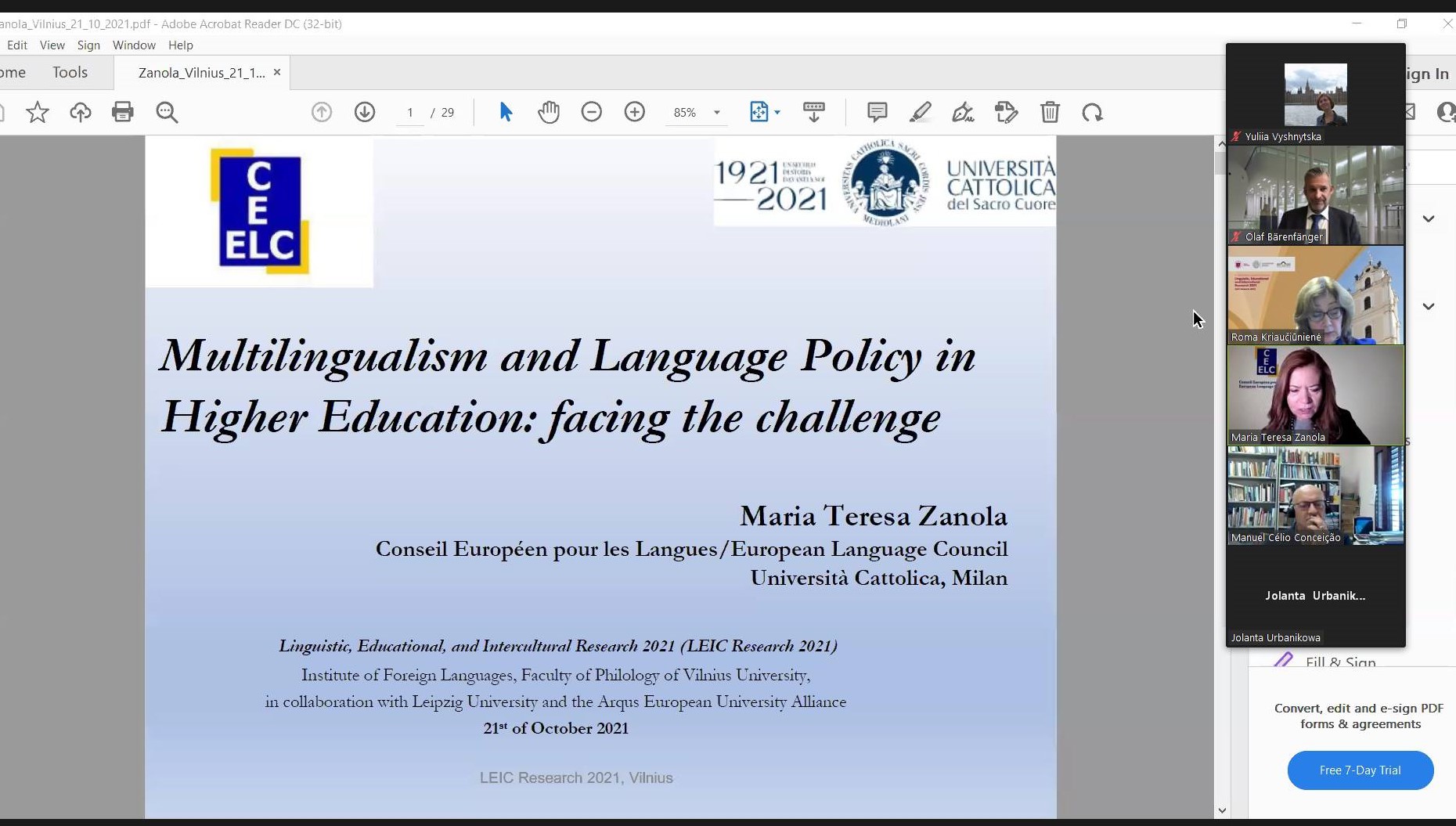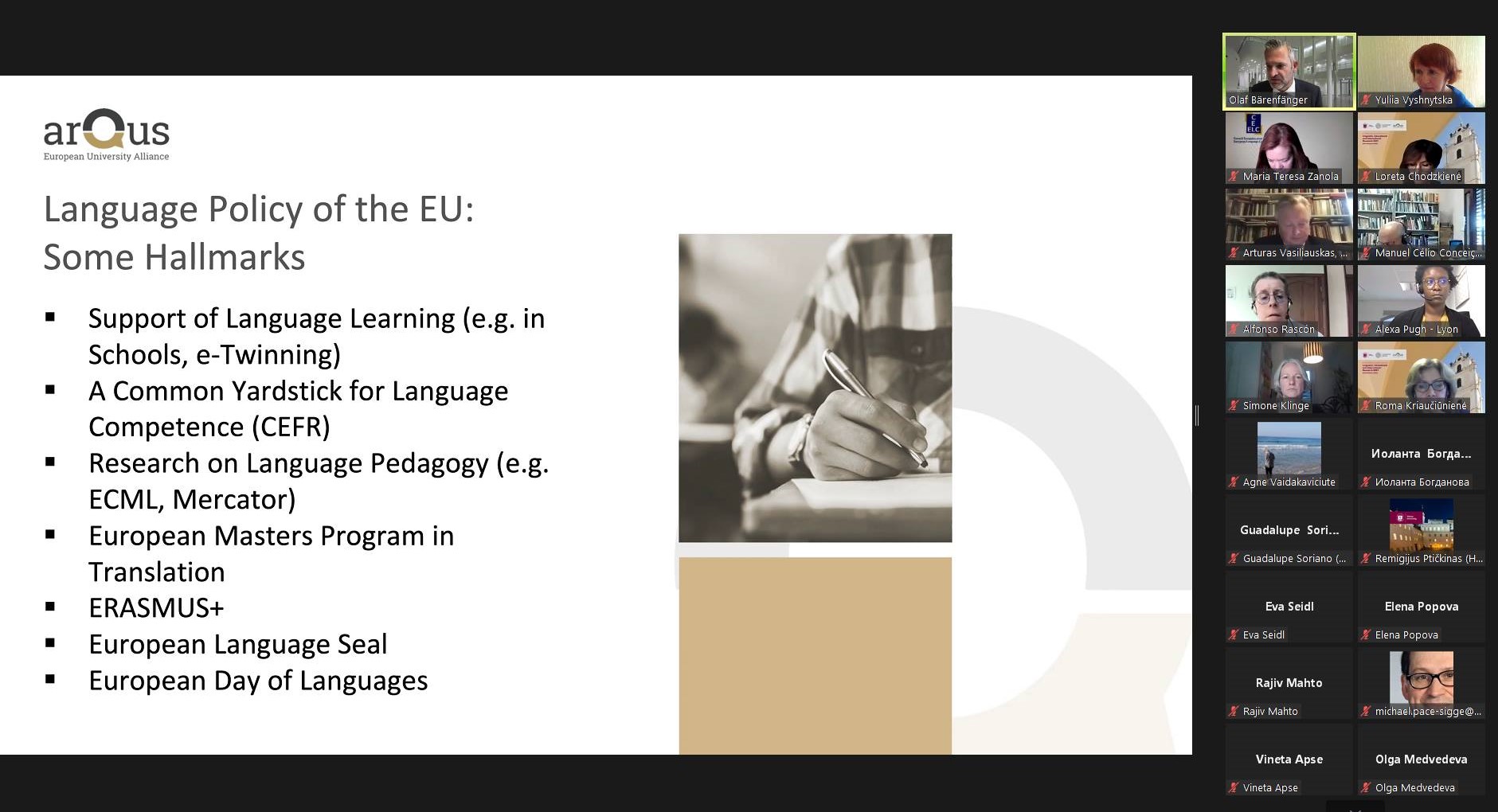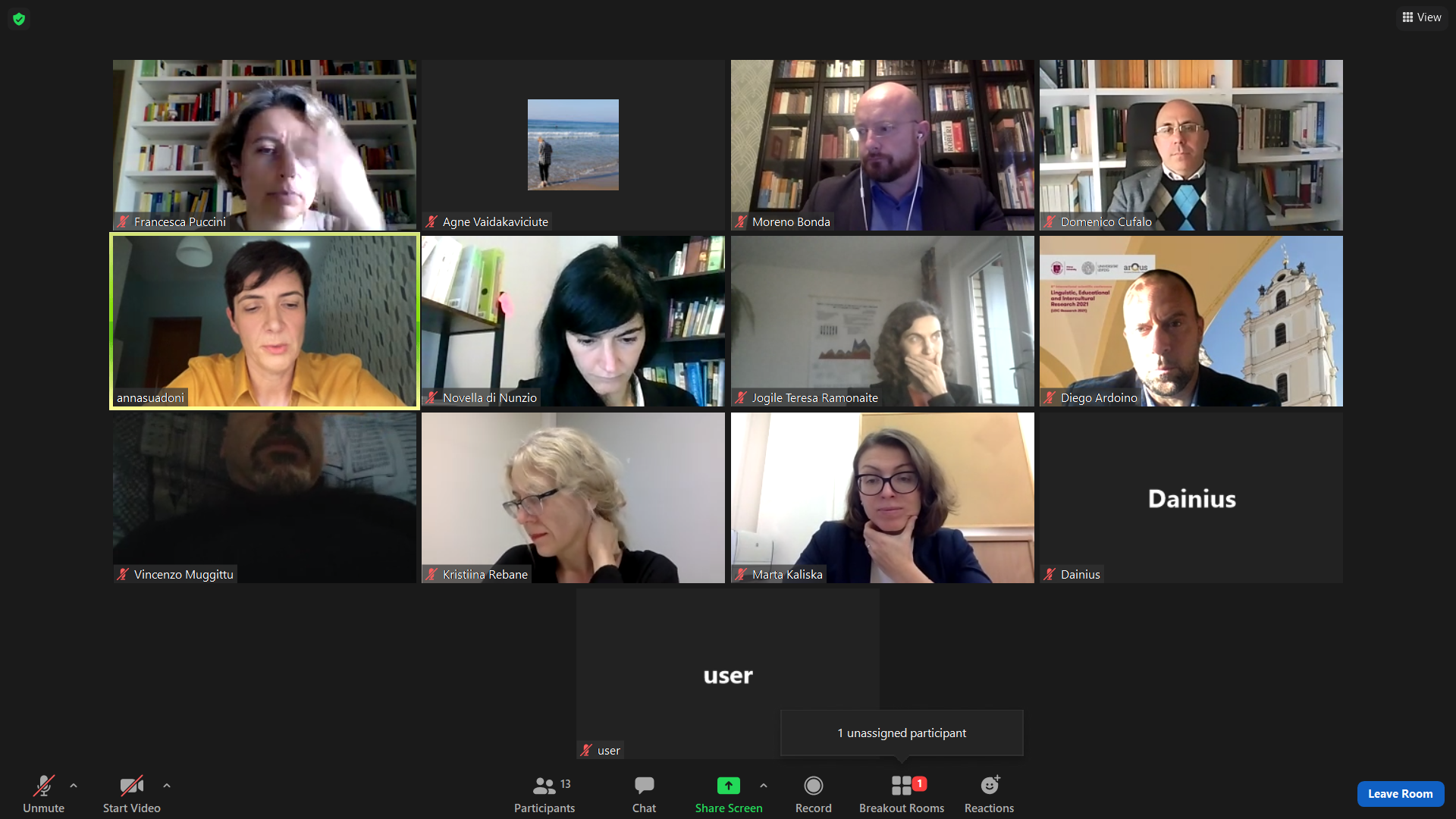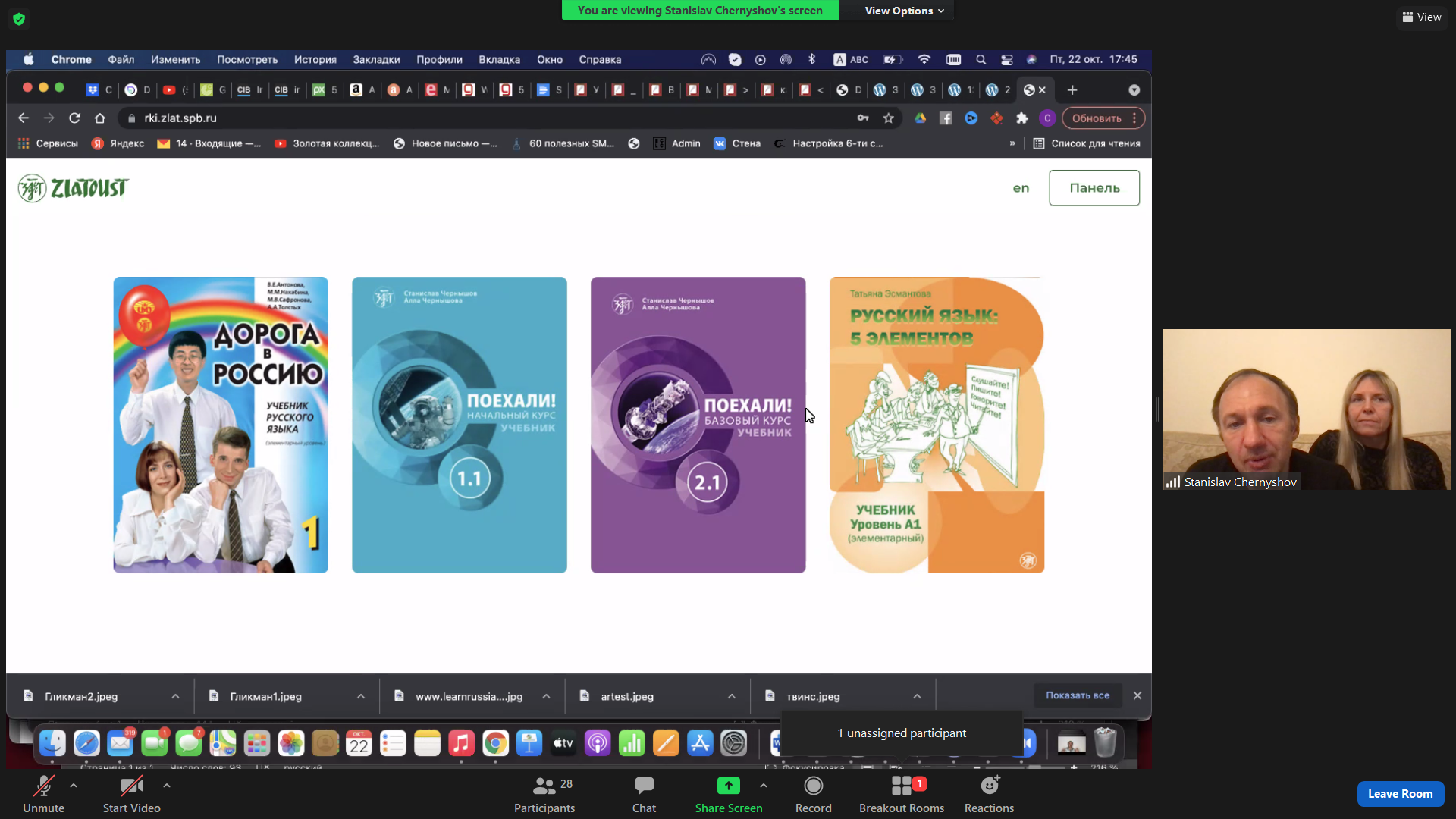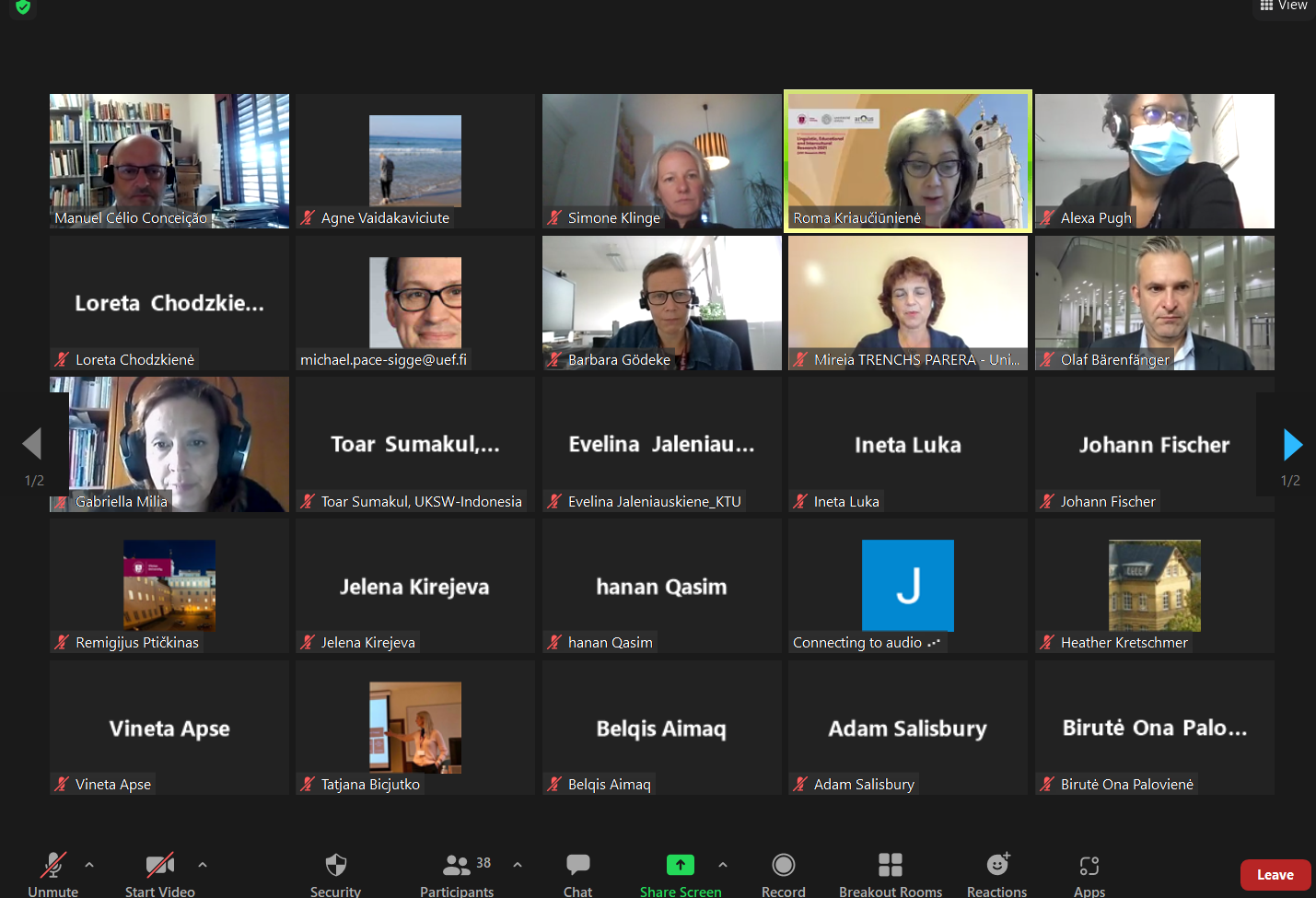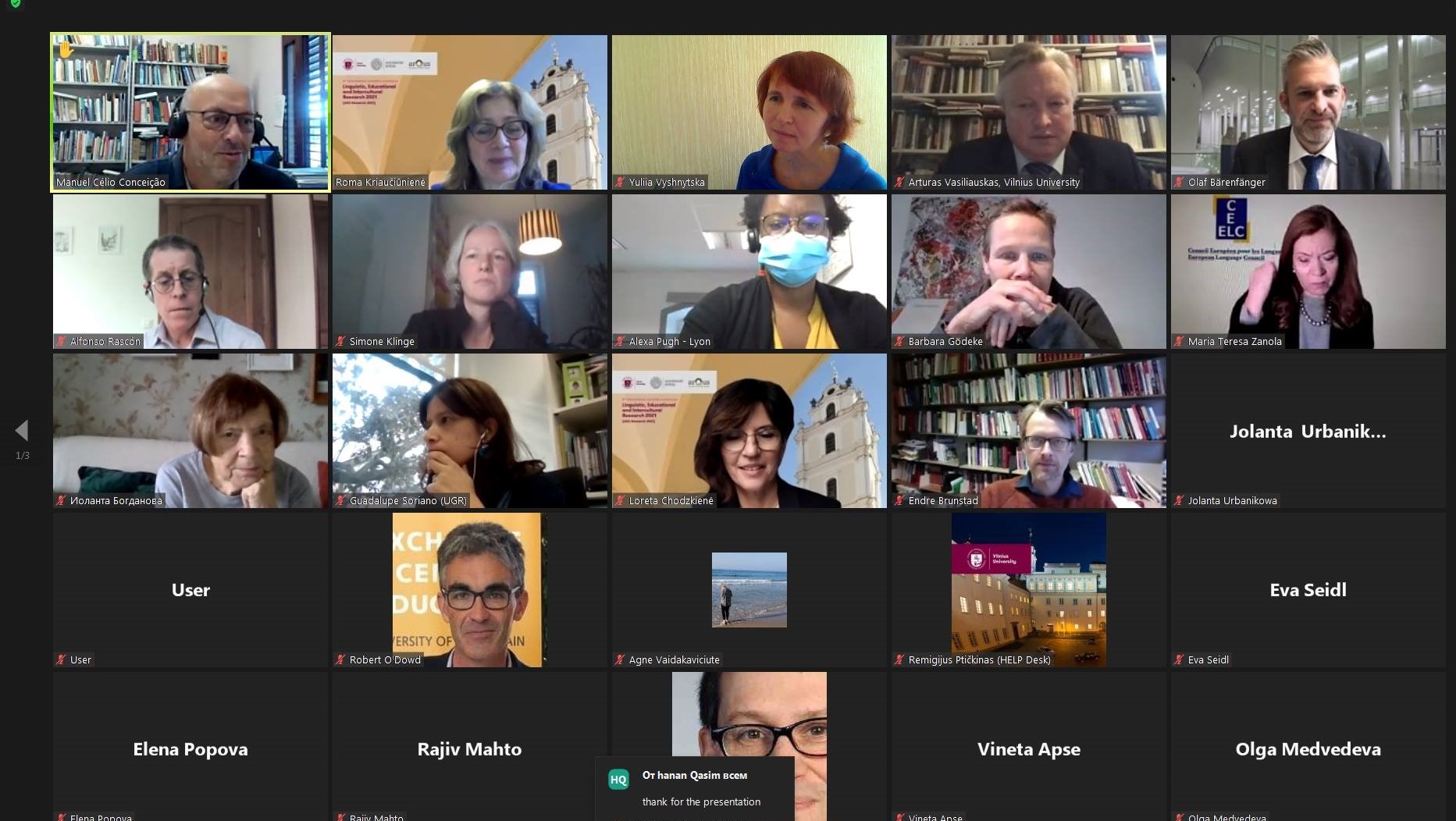8th International scientific conference The Linguistic, Educational and Intercultural Research 2021 (LEIC Research 2021) aims to bring together researchers, university lecturers and teachers, as well as representatives of educational institutions. We welcome participants from many countries, to provide them with an opportunity to collaborate and extend cooperation among scholars, practitioners and educators from within the Arqus European University Alliance, as well as with representatives from other universities.
The online conference will enable participants:
-
to exchange and share their research results; - compare experiences and best practice on all aspects of the conference themes;
- provide renewed inspiration for their future research and teaching.
During the conference presentations and workshops are held in English. To promote multilingualism, panel sessions and interactive language cafés will be delivered in languages other than English, dependent on the languages of the delegates.
The pandemic has raised challenges for all educational institutions; therefore, the conference will encourage educators to rethink their pedagogical practices, curriculum and materials development processes and approaches to language teaching in order to bring the most recent research findings into our university classrooms.
The conference invites participants:
-
to discuss language teaching in the post-pandemic space; -
to present the most successful ways for language teachers to address the needs of the new generation of students; -
to promote democratic citizenship, social inclusion, and intercultural dialogue in our increasingly multicultural and multilingual classrooms.
Conference will take place October 21-22, 2021 in a REMOTE ONLINE MODE via Zoom platform.
Responsible for monitoring the Conference in an online mode: Institute of Foreign Languages of the Faculty of Philology, Vilnius University, 5 Universiteto St., LT-01513 Vilnius, Lithuania
Speakers
Olaf Bärenfänger

Olaf Bärenfänger
He has headed the Language Centre at Leipzig University since 2008. He also teaches at the Herder Institute of Leipzig University as a professor specialising in applied linguistics.
His academic research focuses on digital and virtual teaching and learning methods, test science, the description and measurement of professional and academic language skills, as well as the planning and implementation of needs analyses as a basis for meaningful language testing procedures and language teaching. He heads Action Line 4 “Multilingual and Multicultural University” in the Arqus Alliance.
His presentation theme "Multilingualism and Multiculturalism - Arqus perspective"
Manuel Célio Conceição
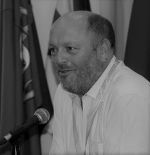
Manuel Célio Conceição
Professor, Faculty of Human and Social Sciences, University of Algarve (PT)
Researcher, Research Center for Arts and Communication (CIAC)
Former Dean of the Faculty
Former Pro-rector of the University
President ex officio of the Conseil Européen pour les Langues/ European Language Council
Main research and teaching interests: multilingualism, languages policies, technical and scientific communication, terminology, languages teaching and learning.
His presentation theme - "Linguistic diversity and knowledge in Higher Education: as embedded engagement"
Johann Fischer

Johann Fischer
Johann Fischer is the Director of ZESS (Centre for Languages and Transferable Skills) at Georg-August-Universität Göttingen and the Head of the Scientific Committee of UNIcert, the German quality label for language teaching, testing and certification in higher education. Former Secretary General and President of CercleS, he is currently a member of the Board of AKS. His research focuses on the implementation of the CEFR, task-based teaching & assessment, and staff development. He has been coordinator of European projects with the European Commission and the ECML. He is one of the founders of NULTE – the Network of University Language Testers in Europe.
His presentation theme - "Rethinking language assesment: integrating the four skills in task-based assesment - making language tests meaningful"
Robert O'Dowd
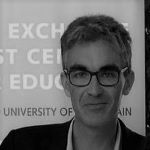
Robert O’Dowd
He is Associate Professor (professor titular) for English as a Foreign Language and Applied Linguistics at the University of León, Spain. He has taught at universities in Ireland, Germany and Spain and has over 40 publications on the application of Virtual Exchange in university and pre-university education settings. He was the founding president of the UNICollaboration academic organization for telecollaboration and virtual exchange and has been invited to be plenary speaker at international conferences in the US, Asia and across Europe.
Among recent activities, he was invited in 2019 to be co-editor of a special edition of the prestigious journal Language Learning & Technology on the theme of Virtual Exchange in Foreign Language Education. He also coordinated the Erasmus projects Integrating International Networks in Higher Education (INTENT) (2011-2014) and the European Policy Experiment Evaluating and Upscaling Telecollaborative Teacher Education (EVALUATE) (2017-2019).
He is currently coordinating the Erasmus+ European Policy Experiment Virtual Innovation and Support Networks for Teachers (VALIANT) (2021-2024) and collaborates with other experts in the UNICollaboration organisation to offer comprehensive evaluation studies of Virtual Exchange programmes.
His presentation theme - "Reviewing Intercultural Learning Outcomes in Virtual Exchange"
Mireia Trenchs-Parera

Mireia Trenchs-Parera
She is Professor of Applied Linguistics and Multilingualism, Department of Humanities, Universitat Pompeu Fabra, Barcelona (SPAIN).
Professor of English Studies holding a Chair in Applied Linguistics and Multilingualism at the Department of Humanities of Universitat Pompeu Fabra (Barcelona, Spain). Elected board member of Conseil Européen pour les Langues/European Language Council (CEL/ELC) and Societat Catalana de Sociolingüística (SOCS). Principal researcher of Intercultural Spaces, Languages and Identities research group (GREILI-UPF) and senior researcher of the Acquisition of Languages from the Multilingual Catalonia research group (ALLENCAM). Currently, her lines of research include qualitative and mixed-method studies on: (a) ideologies and language practices in multilingual and multicultural contexts, (b) language teaching, acquisition and learning in multilingual and international contexts, and (c) transcultural competence in internationalized educational contexts and stays abroad. Author and editor of books (E-mails a una Mestra, Nuevas Tecnologías para el Autoaprendizaje y la Didáctica de Lenguas and Experiencias de Innovación Docente en la Enseñanza Universitaria de las Humanidades), as well as of book chapters published by John Benjamins, Milenio, Multilingual Matters, Octaedro and Routledge publishing houses. She has also published scientific articles in such journals as Language and Linguistic Compass, International Journal of Bilingual Education and Bilingualism, Journal of Sociolinguistics, Journal of Multilingual and Multicultural Development, Canadian Modern Language Review and English for Specific Purposes.
Her presentation theme - “Plurilingualism, intercultural sensitivity and new identities in the 21st-century (non-) internationalized un-dergraduate classroom”
Maria Teresa Zanola

Maria Teresa Zanola
She is full Professor of French Linguistics at the Università Cattolica of Milan, where she is director of the Observatory of Terminologies and Language Policies (OTPL) and of the Language Center. Chevalier dans l’Ordre des Arts et des lettres (French Ministry of Culture and Communication, 2013) she is president of the Conseil Européen pour les Langues/European Language Council (CEL/ELC) and of Realiter (the network of terminology in Romance languages). Her studies have achieved very significant results in two main directions: theoretical and diachronic research in terminology and analysis of international perspectives on language policy in Higher Education.
Her presentation theme - “Multilingual-ism and Language Policy in Higher Education: facing the challenge”

